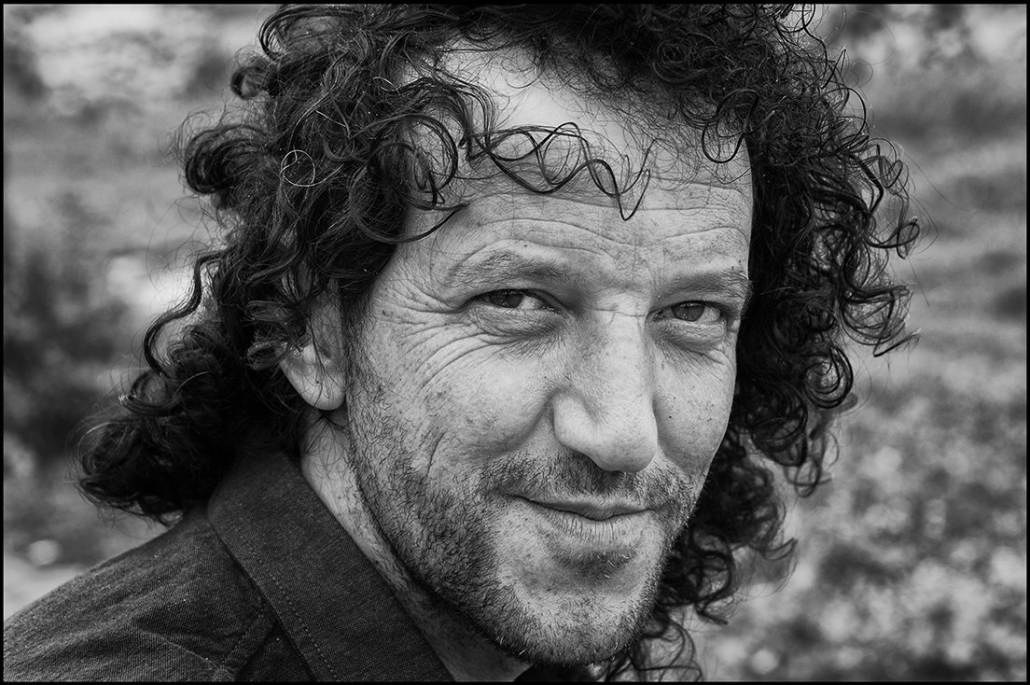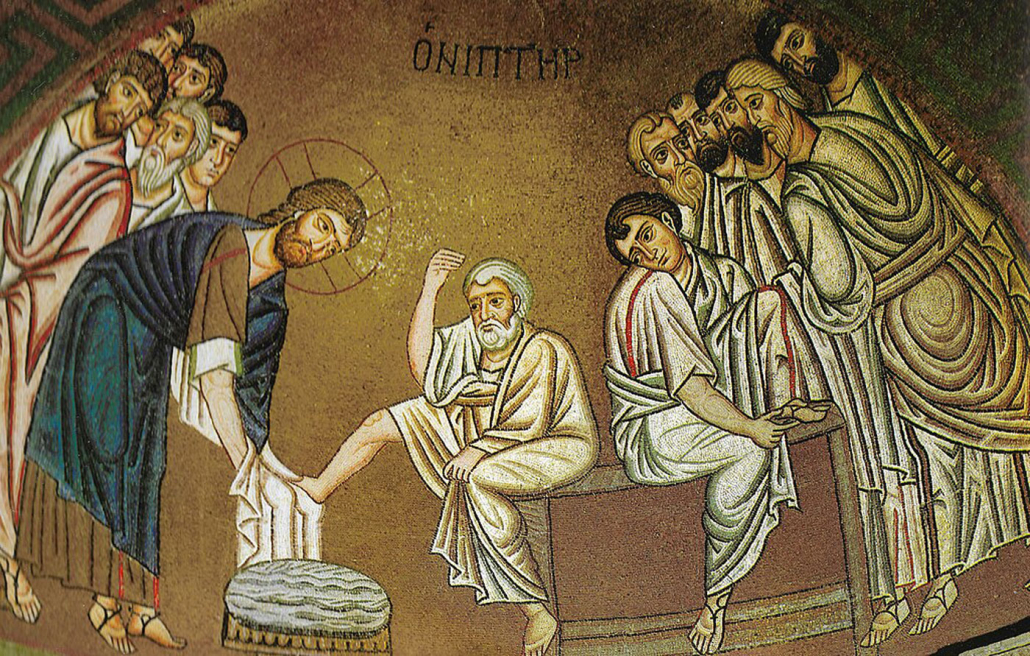Image: Icon (mosaic): Footwashing, Hosios Loukas, c. 1100 (photo by Michel Bakni).
‘The story of Jesus and friends’
Andrew Collis
Holy Thursday, Year B
John 13:1-17,31b-35
Our mosaic image shows Jesus washing the feet of disciples (a scene from John’s gospel). It’s about being kind (even amid difficulty and under stress). It’s about mutual service. It’s about equality – “encouraging, comforting and urging … lives worthy of God” (as the Apostle Paul says [1 Thessalonians 2:9-20]). It’s about bare feet and holy ground, hard traveling and “walking the walk”.
And it’s about overturning expectations of honour and status …
Our custom in recent years has been to hear the story of Jesus and friends alongside/within another story of faithfulness, love, wisdom, courage, grace … (the story has depth, the story goes on) …
We have incorporated a witness to holiness in the life of Dag Hammarskjöld; Dorothy Day and Peter Maurin of the Catholic Worker movement; Dietrich Bonhoeffer; Uncle Archie Roach; and Sr Corita Kent; witness to holy inclusivity in the seven authentic letters of St Paul the Apostle; witness to holy generosity in the story of Nirjala, a WCC ambassador for peace …
Tonight we receive the words of Ali Abu Awwad, a Palestinian peace-maker more concerned with solving generational conflict/hatred/trauma – interrupting cycles of violence – than appearing holy … Awwad has been an advocate of nonviolent action for 20 years. The founder of Taghyeer (an Arabic word meaning “change”), he was recently awarded the Indira Gandhi Prize for Peace, Disarmament and Development for 2023.
He writes: “The Palestinians have been living in extreme despair for years and both the international community and Israeli society have given us no hope, no model of peaceful solution. The role of nonviolence is to speak to people’s despair – not to tell them they are right, but to show them a way out.”
The invitation is to receive his words (honouring their integrity as prayerful words of a Muslim believer) as gifts throughout Holy Week and Easter, and beyond … Indeed, our holy days coincide with Ramadan, and we pray for all our siblings in the Holy Land …

Image: Ali Abu Awwad.
Our reading from John’s gospel includes the new commandment: “Love one another.”
Indeed, those who live in accordance with love, Jesus says, are his disciples. Those who live in accordance with love express friendship, extend friendship to others, with others …
Foot or hand washing, like breaking bread, means loving as friends love.
“In the culture of the church, a great deal is made of the nuclear family and yet Jesus’ radical vision for humanity living in right relation with self, with others, with creation and with the Sacred, is grounded in neither biology nor marriage but in friendship … the only human relationship that is based on equality and mutuality. [Friendship] calls us beyond love for one another into the world, to making friends with those whom society deems to be outside our realm of care” (Margaret Mayman, after Sandra Schneiders).
Foot or hand washing, like breaking bread, is a practice or training that builds capacity for friendship – giving and receiving love, support, encouragement, wisdom.
It is a practice by which we may come to understand the story of Jesus (and friends) as a sacred story.
“In the theology of the hour that Jesus realised had come, the Cross is not a symbol of sacrifice to satisfy an angry God, but a symbol of the gift of Jesus’ life for those he knew and loved as friends” (Margaret Mayman).
We are reminded of our responsibility as storytellers and bearers of tradition. How we interpret our symbols is a matter of great importance, with real consequence. The Cross is a symbol of the gift of Jesus’ life … the Promised Land is a symbol of divine blessing …
Ali Abu Awwad says: “The Jews are not my enemy; their fear is my enemy. We must help them to stop being so afraid – their whole history has terrified them – but I refuse to be a victim of Jewish fear anymore.”
Let us give thanks (eucharist) – with Jesus – for our friends, including parents and children, siblings and cousins with capacity for friendship, neighbours and lovers, all creatures and strangers bearing the promise of friendship …
Let us give thanks (eucharist) for the gifts (charis/grace/chara/joy) of God that free us to be faithful hosts and guests, to translate back and forth without collapsing the distinction between host and guest languages (host and guest testimonies), to promote nonviolence and even to prevent war.
God is love. There is love to share and there is more to love. Amen.




